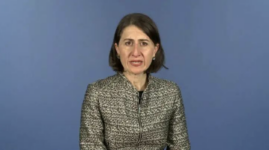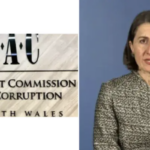Judicial Reviews by the Court of Appeal in New South Wales

Former New South Wales Premier Gladys Berejiklian has made clear she won’t stand by allegations of corrupt conduct made against her by the Independent Commission Against Corruption (ICAC), applying to the state’s Court of Criminal Appeal for a judicial review against the corruption watchdog’s findings.
Finding of corrupt conduct
In June of this year, the ICAC delivered damning findings against both Ms Berejiklian and her ‘secret lover’, disgraced former MP Daryl Maguire, which were the result of an investigation into the latter’s use of his position during his tenure and Member for Wagga Wagga to corruptly take payments from developers in exchange for approvals.
The ICAC found that both Berejiklian and Maguire had engaged in serious corrupt conduct, but referred only the latter’s case to the New South Wales Office of the Director of Public Prosecution for determination as to whether criminal charges should be brought against him.
Finding of ‘serious corrupt conduct’
Ms Berejiklian was called before an ICAC hearing into Mr Maguire’s conduct, during which covert phone intercepts between the pair were played which not only revealed the former premier had neglected her duty to disclose the intimate relationship (given the premier had a significant say in whether Maguire’s electorate received grants) but perhaps more importantly that Berejiklian showed at least a wilful ignorance and at most knowledge of Maguire’s corruption, stating words such as ‘I don’t need to know about that’ when shady deals were raised.
ICAC specifically found that Berejiklian’s failure to declare a personal conflict of interest in relation to funding for the Australian Clay Target Association (ACTA) and the Riverina Conservatorium of Music was a breach of public trust.
The watchdog further found she engaged in corrupt conduct by failing to report what it termed ‘suspicions’ that Maguire had engaged in corrupt conduct.
The findings of Operation Keppel are public, and can be downloaded from ICAC’s website.
ICAC under fire
Shortly after the findings were released, ICAC was investigated due to delays in releasing its final report.
But the watchdog was cleared in August of ‘maladministration’, with the investigation acknowledging delays were a result of the considerable complexities involved in Operation Keppel.
Despite being cleared, a number of recommendations were made to assist the watchdog in better meeting performance indicators.
Optus says ‘yes’
Ms Berejiklian resigned as NSW Premier as ICAC announced it would be investigating her – right in the middle of the Covid-19 pandemic.
Shortly thereafter, she picked up a senior role with Optus, keeping a fairly low profile since she left the state’s top job.
Now, she has applied to the NSW Court of Appeal for a judicial review of the ICAC’s findings against her, and the matter has been listed for a directions hearing – during which a timetable for the next steps will be set – on
An while her move is an attempt to clear her name, there is also a chance it will backfire as there is a possibility the matter will be dismissed and the watchdog’s findings thereby validated.
Judicial reviews by the NSW Court of Appeal
The New South Wales Court of Appeal is a division of the Supreme Court of New South Wales.
The Court has what is known as ‘supervisory jurisdiction’, the overriding objective of which is to ensure the rule of law is maintained across the state.
Part of this role is to perform judicial reviews of:
- Activities of the executive arm the state government,
- The exercise of judicial power by state courts and tribunals, and
- The constitutional validity of legislation.
Reviews relate only to errors of law
The Court of Appeal has jurisdiction to judicially review:
- Statutory appeals on an error of law, except for those from the Local or District Court, and
- Challenges based on errors of law by New South Wales government departments, agencies and commissions.
The power to conduct a judicial review is set out in section 69 of the Supreme Court Act 1970 (NSW), and it is important to note the Court of Appeal can only consider errors of law, rather than factual errors.
Most frequently reviewed decisions
The findings most frequently referred to the Court of Appeal for judicial review are administrative decisions made by non-judicial officers of New South Wales government departments, agencies and commissions, including the Independent Commission Against Corruption.
These reviews take place in the Administrative Law List of the Court’s Common Law Division.
Examples of errors of law
The types of errors of law that may be considered include but are not limited to:
- Not taking into into account a mandatory relevant consideration,
- Taking into account an irrelevant consideration,
- Failing to give reasons, or adequate reasons, for a decision,
- Failing to correctly apply a statutory test or applying an incorrect statutory test,
- Failing to provide an opportunity to be heard,
- Legal unreasonableness, and
- Insufficient evidence to support a finding.
Time limit and procedure
The time limit for filing a judicial review a judicial review is generally 28 days from the ‘material date’, which is normally the date of the decision.
However, the Court of Appeal has power to extend the time period as it sees fit.
The procedure that applies is contained in Part 59 of the Uniform Civil Procedure Rules 2005 (NSW) which, among other things, provides that proceedings are to be commenced by way of summons, explains the required contents of that document, the rules for service and response, and the manner by which evidence is given at the hearing – which is generally by affidavit and that the parties can apply for leave (permission) to cross-examine the deponent.
The applicable Form 85 summons can be found on the Supreme Court website.
Relief
The Court of Appeal can confirm, vary or set aside a reviewed decision or finding.
Ms Berejiklian is seeking to have ICAC’s finding that she engaged in ‘serious corrupt conduct’ set aside.
The relationship between ICAC and politicians
As the only corruption watchdog in New South Wales, ICAC has always had a “prickly” relationship with politicians who have been known to deride its existence, calling it a “the star chamber” and a “kangaroo court”. Over time, it has made enemies and some politicians would have us believe that it’s a complete waste of time and money.
But ICAC was created with the best of intentions in 1988 by then NSW Premier Nick Greiner after a string of very serious corruption scandals in New South Wales. He had a vision of a strong, impartial organisation with the powers to deal with corruption and to act in the best interests of the public.
Ironically, it was adverse findings by ICAC against Nick Greiner in 1992 which led to a ‘no-confidence’ motion that ended his term in the top job. He appealed the findings later the same year, and won. He is the only other NSW Premier to do so.
Detecting and preventing corruption
However, his original comments about ICAC, ring loud and true to this day – “the people of this state are fed up with half-hearted and cosmetic approaches to preventing public sector corruption.”
ICAC’s equivalent in Victoria, the Independent Broad-based Anti-corruption Commission (IBAC), faces similar challenges and a similar fractious relationship with the state Government.
In recent years, IBAC has coined the term “grey corruption”, which essentially characterizes acts that are not unlawful, but which are still immoral, or self-serving – which don’t have the best interests of the public at heart.
Of course, grey corruption represents a very slippery slope.
And this is why ICAC is important, and why comparisons between findings of ‘serious corruption’ against Gladys Berejiklian and Barry O’farrell falling on his sword over a $3,000 bottle of Penfolds wine are not necessarily helpful.
Time and again in the past couple of years we’ve been starkly reminded of how easy it is for politicians and others in authority to hoodwink the public – Sports Rorts, pork barrelling, self-appointments to secret ministries, toxic workplace behaviour, Robodebt … the list goes on.
We need the ICAC to remain impartial and empowered to uncover corruption and misconduct – no matter how seemingly trivial or very serious – because in doing so, it also acts as an important barometer of integrity.
Without ICAC bringing such matters to public attention, a climate of leaky morals and ethics can fester, and this is exactly where corruption begins to take root.








